Main Bear With me or Bare With me Takeaways:
- The correct phrase is bear with me.
- Bare with me is incorrect, but using the phrase is a common mistake.
- Bear with me dates back to Elizabethan times, if not earlier. Shakespeare was a big fan.
- Bear and bare are homophones (two words that sound alike but mean different things).
- Bear ? is a noun that refers to an animal.
- Bear can also be a verb. Literally, it means to carry a heavy burden. Figuratively, it means to endure or suffer through something.
- Bare ? is a verb that means to uncover to to reveal. It can be an adjective that refers to nudity, vulnerability, or minimalism.
- You can use a mnemonic device to help remember the difference between bear and bare. Just remember that “bare” is embarrassing and something to be avoided.
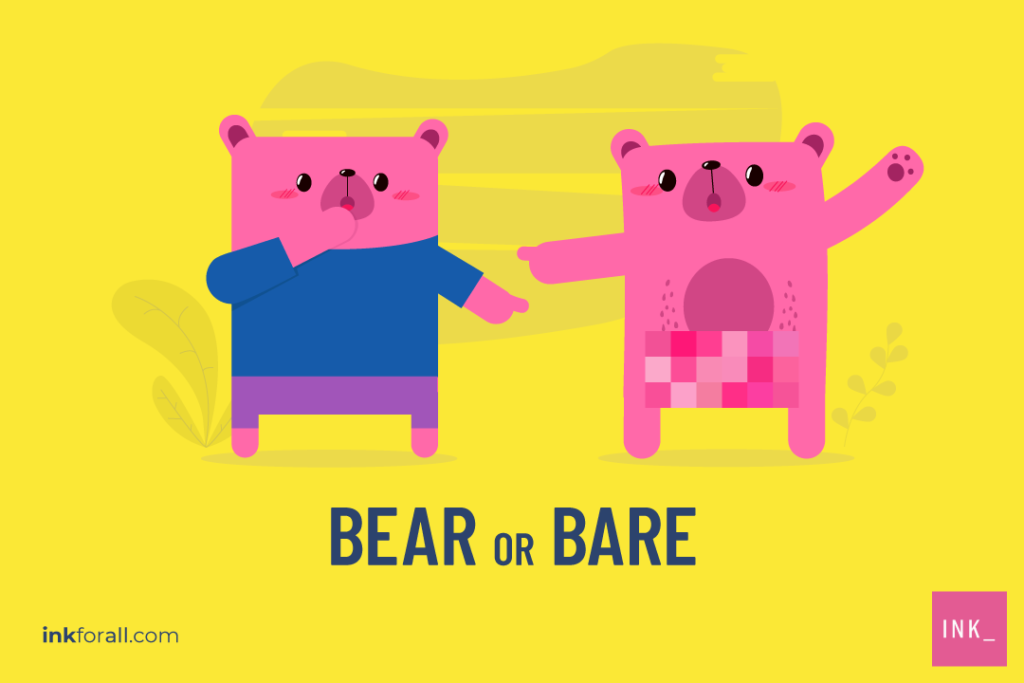

In this post, we’ll discuss how to use each word properly. We’ll also give you the best tricks for what to do when you can’t remember which is correct. Finally, we’ll look at the origins of the phrase bare with me.
Is it Bare With or Bear With?
The correct phrase is bear with me. This is because the verb bear means to carry a heavy burden or endure something. For this reason, when you ask someone to bear with you, you’re asking them to bear the burden of interacting with you. In short, you’re asking someone to be patient with you. An example sentence is “bear with me while I try to remember where I put my keys.” Conversely, if the phrase were bare with me, it would be a strange way of asking someone to be nude with you!
You might use this phrase if you’re searching for paperwork or trying to explain a particularly complex concept.
What’s the Difference Between Bear and Bare?
Bear and bare are homophones, or two words that have the same pronunciation but mean different things. On one hand, bear is a noun that refers to a large mammal. It can also be a verb meaning to carry, support, tolerate, suffer, or put up with something. On the other hand, bare can be an adjective meaning exposed, naked, or lacking in decoration. It can also be a verb meaning to uncover or expose something or someone.
The Best Ways to Remember the Difference
If you need help to remember the difference between the two, consider using a mnemonic device. Mnemonics are little tricks that help us connect information using tools like imagery, music, and abbreviations.


Here are the top 3 ways to remember that the correct phrase is bear with me:
- Picture a big bear being extraordinarily patient while waiting for spring (hibernation can be so boring).
- Think about about how patient you’d have to be to play cards with a bear. He’d say, “Bear with meas I try to shuffle this deck without thumbs!”
- Associate the BAR in bare with embarrassing. Asking someone to bare with you might be embarrassing.
What can I say Instead of Bear With me?
Here are alternatives to the phrase bear with me:
- (Formal) Please be patient with me
- (Formal) Thank you for being patient with me
- (Formal) Please wait a moment
- (Formal) Thank you for waiting
- (Formal) I’ll be right with you
- (Informal) Hold on
- (Informal) Please stand by
- (Informal) Thanks for putting up with me.
Where Does the Saying Bear With me Come From?
The saying bear with me most likely stems from what bear means. Literally, the verb to bear means to carry a heavy burden. Figuratively, it’s come to mean to endure or suffer through something. As a result, we probably get the phrase from sharing a burden or an unpleasant experience with someone. We can’t be sure who first used this “beary“ tricky phrase. However, we do know it dates back to at least around the year 1600. That’s when Shakespeare wrote Julius Caesar and included this passage: “Bear with me; My heart is in the coffin there with Caesar.”


Shakespeare also used forms of this phrase as dialogue in other works, including King Lear, As You Like It, and Richard III.
This suggests that the phrase didn’t originate with Shakespeare but was rather a normal part of the everyday conversation at the time.
Other Idioms With Bear
There are other ways to use bear in a non-animal-related sentence.
A mnemonic would work with all of these examples, too. “Grin and bear it” would be easy to remember if you thought about a polar bear wearing a big cheesy smile.
Unsure whether it’s bear in mind or bare in mind? Just think of a grizzly doing the Macarena inside your head.
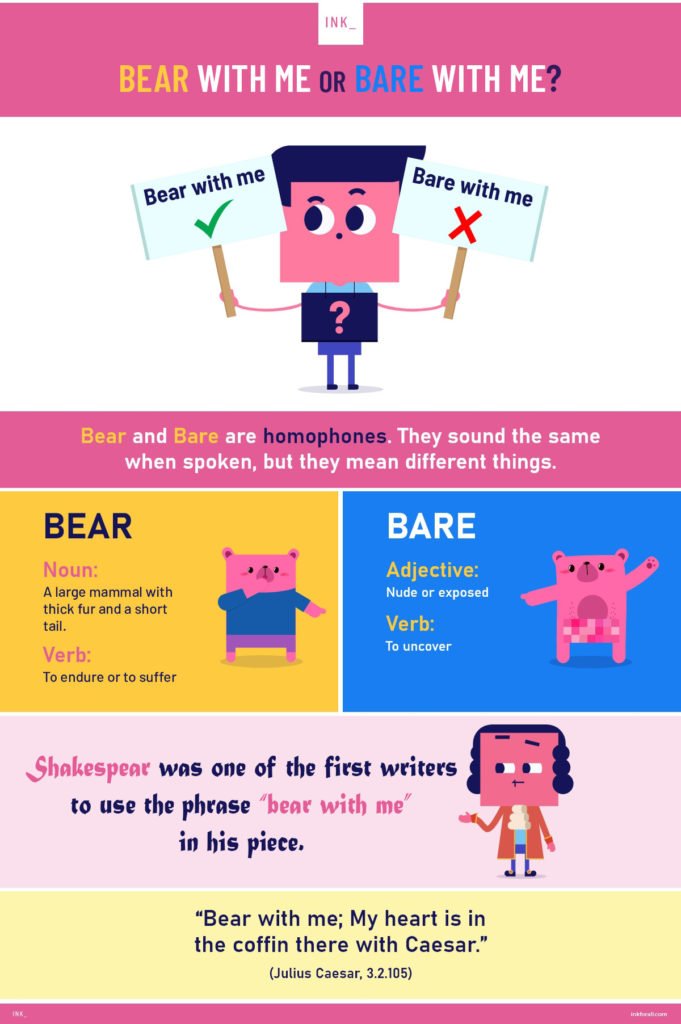

Bare vs. Bare Recap
There are a few frustrating things about the English language—silent letters and contronyms, anyone? But there are some wonderfully fun aspects to it, too.
For example, some idioms conjure up hilarious images. If you’ve ever stumbled across the phrase bare with me and wondered whether you should embrace a clothing-free future, you’re not alone.
Or, this error might call to mind a bad dream where you get up in front of your class to give a speech and realize you’re nudie. Clearly, this usage is a nightmare, and therefore not the one you want to use!
Maybe you’re staring at your email, wondering whether you should be using bear with me or bare with me. We’ve been there!
The correct expression is actually bear with me. And no, it has nothing to do with big furry animals or nudity.
Ready to Avoid EmBARassment? Test Your Skills
Bear With Me or Bare With Me Question #1
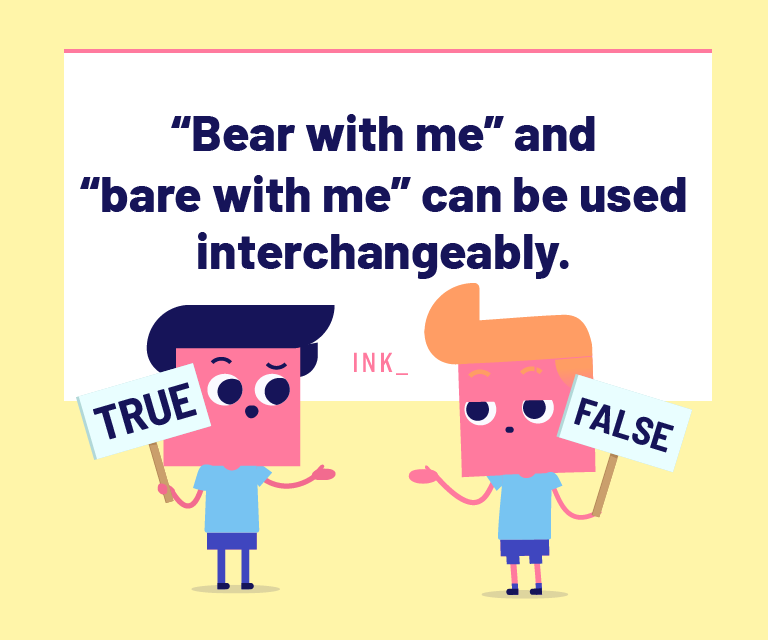

The answer is FALSE. Although bear and bare have the same pronunciation, they mean different things.
Bear With Me Question #2
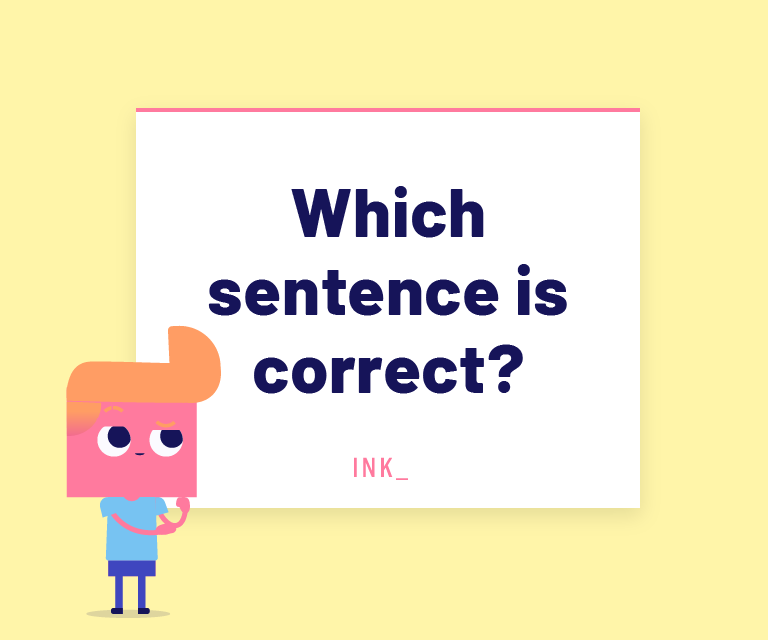

The answer is A. Bear with me is the correct way to ask someone to be patient with you.
Bear vs. Bare Question #3
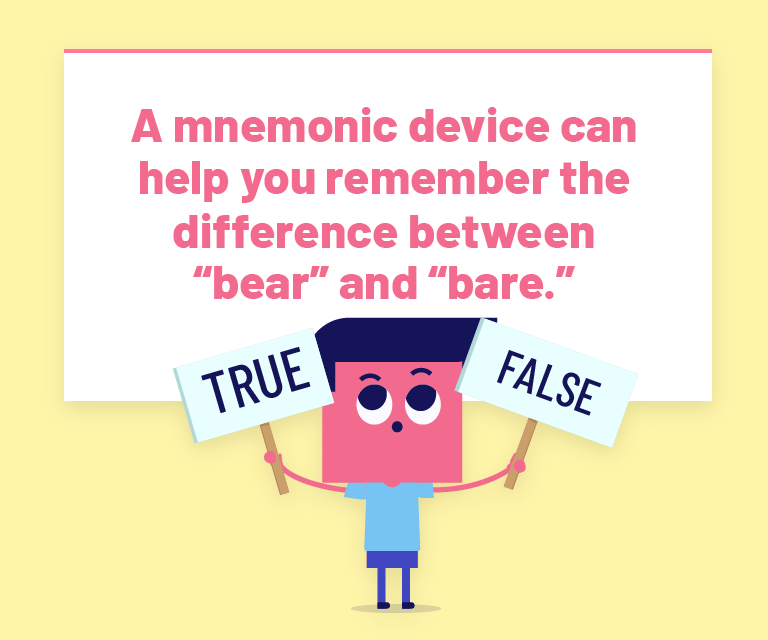

The answer is TRUE. Imagine bear with me as a grizzly bear that's patiently waiting for spring.
